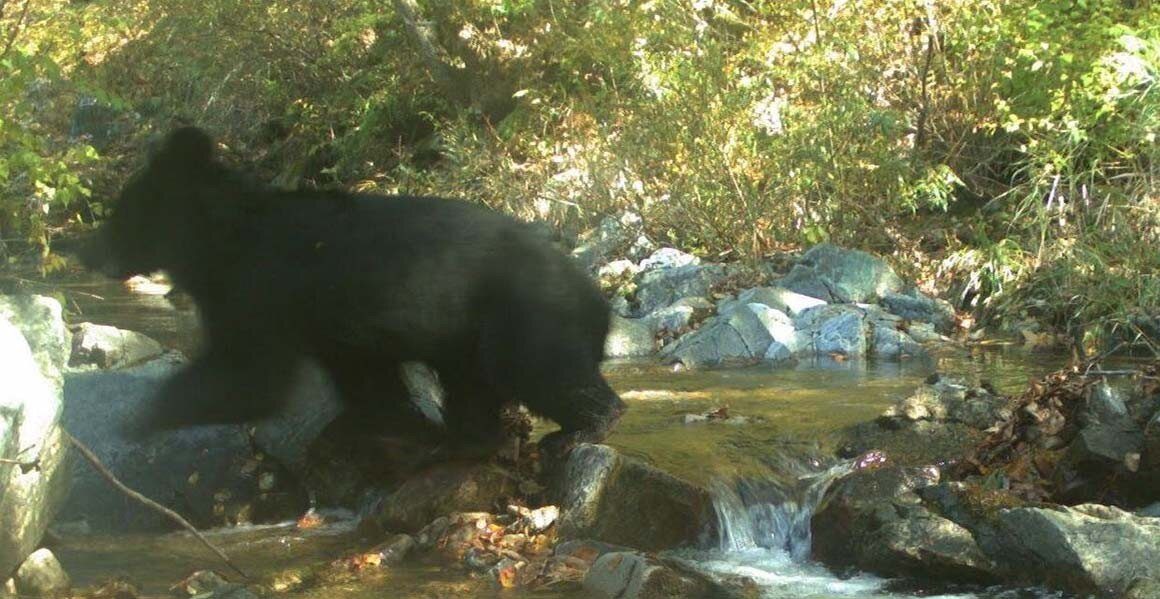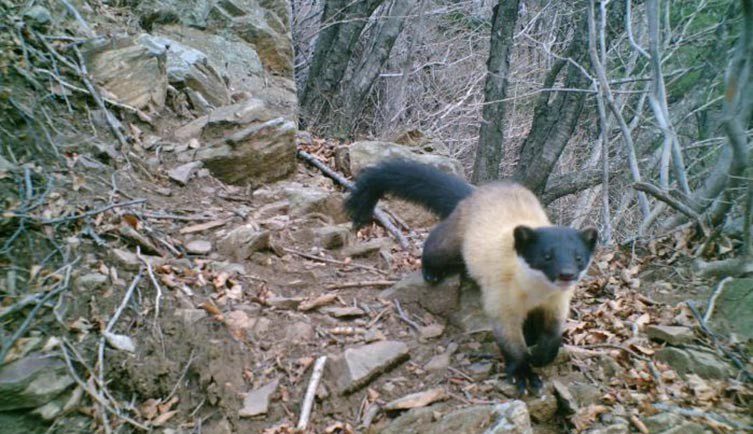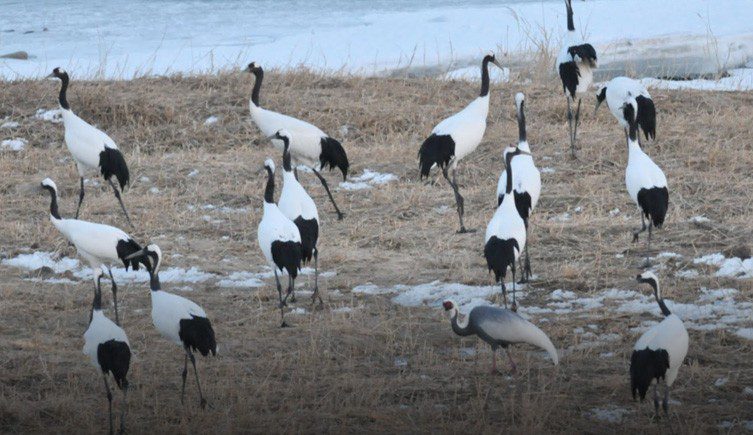The Korean Demilitarized Zone (DMZ) is, despite its name, the most militarized border in the world. Thanks to the absence of humans, however, this depopulated strip of land running across the Korean peninsula has become a haven for wildlife and hosts many of Korea’s rarest species.
The DMZ runs between South Korea and North Korea, roughly diving the peninsular in half. It was established in the early days of the Cold War through an armistice designed to end the Korean War (1950 to 1953) between the communist-backed North and the US-supported South.
Still to this day, parts of this 250-kilometer (160-mile) long belt of land are filled with landmines and barbed wire fences, but much of it remains a “no man’s land” where civilians are strictly forbidden from treading.

The Bare Necessities in the Korean DMZ. Image credit: ©National Institute of Ecology/Google Arts & Culture
Just like the abandoned lands around Chernobyl, the lack of human interference has given biodiversity the perfect opportunity to thrive. It’s estimated that 6,168 species live in the DMZ, many of which are threatened with extinction. Of the 267 endangered species that live in the Korean Peninsula, 102 of them live in the DMZ.
To mark the 70th anniversary of the end of the Korean War, Google Arts & Culture and the National Institute of Ecology in South Korea have released a bunch of images that provide a rare insight into the many unique species that live in the DMZ.
Along with publishing these images, you can also view the animals in 3D and augmented reality, as well as take a digital wander through some of South Korea’s most stunning natural sites.

A yellow-throated marten slyly wanders the DMZ. Image credit: ©National Institute of Ecology/Google Arts & Culture
As seen in the freshly released images, one of the grandest species to inhabit the DMZ is the Asian black bear. Found in patches across Asia, an image of a cub was recently captured for the first time in 20 years by the National Institute of Ecology in South Korea.
The DMZ is also home to red-crowned cranes, a majestic bird that often appears in the traditional artworks of East Asian cultures.
Some of the cuter critters that roam these land include wildcats and yellow-throated martens, both of which may look adorable but are actually ferocious hunters that live on rats, mice, hares, snakes, lizards, and any other small animal that comes their way.

Red-crowned cranes are a staple of traditional art in East Asia. Image credit: © National Institute of Ecology/Google Arts & Culture
Given the natural wonders that can be found here, there have been numerous calls by scientists to protect the DMZ. However, tensions between North and South Korea are still red-hot and show no signs of resolving any time soon, making the goal of safeguarding this area a very tricky business.
For the time being, fortunately, the DMZ continues to beam with life.
“Whether or not it will in future shed its militarized nature, the DMZ will likely retain its scientific nature,” concludes a 2020 article published by the Royal Society.
“It has captured the imagination of people around the world who eagerly await the newest pictures from satellites and surveillance cameras, images that reassure us that, despite all that humans have done to destroy nature, there are still places where it can thrive,” it adds.
Source Link: Wonderful Wildlife Is Thriving In Korea's DMZ Without Human Meddling